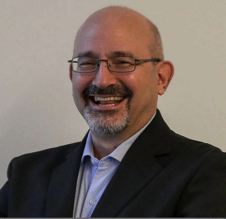Representation Matters: Spotlight on State Rep. Jon Rosenthal
 State Rep. Jon Rosenthal
State Rep. Jon Rosenthal This is the first of what will be a recurring series highlighting openly nonreligious elected officials across the nation. Prior to the 2016 election there were only 5 public nontheist state legislators. Because of the efforts of the Center for Freethought Equality, the political and advocacy arm of the American Humanist Association, we have identified over 60 state and federal legislators today.
It is critical that our community connect and engage with the elected officials who represent our community and our values—you can see a list of these elected officials here.
State Rep. Jon Rosenthal
Representing Texas’ State House District 135
“I am driven to find reasonable, data-driven solutions to the challenges our communities face.”
Raised in a multi-religious family with a Christian mother and Jewish father, Rep. Jon Rosenthal is agnostic. With a Bachelor of Science in Mechanical Engineering, he worked for over 20 years in various technical capacities in and around the oil & gas industry in Houston. Jon brings a unique background as being only one of two practicing engineers serving in the Texas State House of Representatives and the only mechanical engineer.
In the 86th Texas legislative session (2019), Representative Rosenthal served on the County Affairs and Energy Resources Committees and was awarded the Freshman of the Year award by the Legislative Study Group, a nonpartisan policy analysis caucus of the Texas House.
Sarah Levin: What motivated you to run for office?
Rep. Jon Rosenthal: I first got into politics as an activist in early 2017. Like many others, I was dismayed by the 2016 election result, and I was alarmed by early actions of the Trump administration. In March of 2017 I heard about a movement called “Indivisible” and I started a group in NW Houston to oppose the Trump agenda. We focused on flipping the Texas Congressional District 7 seat, to defeat the pro-Trump incumbent representative.
During the course of our activism in 2017, I became much more aware of Texas State politics, especially how our Public Schools had been underfunded and how Texas was the worst state in the Union in terms of access to healthcare. I was also determined to combat bigotry and discrimination in all forms. During November 2017, I finally decided to run for office in the Texas State Legislature.
Levin: What are your policy priorities and how does your nonreligious worldview impact your policy platform?
Rosenthal: My policy priorities have not changed from the start! I’m determined to help preserve the gains we made in the 86th session for public education funding (and to push for more!), and I’m determined to push for Texas to accept the Medicaid expansion and improve access to healthcare. And as always, I’m determined to combat bigotry and discrimination in all forms.
I identify as multi-religious, and since my early teen years I’ve embraced intersections of religious teachings from the major religions. I’m comfortable in synagogues, in churches, and in mosques.
Religious discrimination is a real problem in our culture, and I’ve seen the ugliness firsthand that we should all be working to end. Historically, we have seen religion and scripture inappropriately used as justification for unjust policy and unfair laws, from the perpetuation of slavery to undermining modern healthcare; and I’m here to stand against all of that.
Policy should be driven by love for humanity. It’s so important to keep that in mind and upfront. Bigotry and discrimination work to dehumanize “the other”, and that is unhealthy and unacceptable morally and ethically.
Levin: Why was it important for you to be open about your nonreligious identity?
Rosenthal: It important to me to always be my authentic true self in all spaces and with all people. Not only is this personal policy good for my sanity, but I feel it is important in human relationships. It’s my personal integrity.
I identify as multi-religious and listed my religion as “Agnostic”. As an early teen I completed a Bar Mitzvah and Jewish Confirmation and now I regularly attend services at a local non-denominational church. I recently found a Reform Synagogue with a wonderful Progressive Rabbi and I had planned to start attending services there. The pandemic has interrupted that plan, but only temporarily.
The point is to have love for everyone and promote acceptance and tolerance and integration. There is space for us all to co-exist, and to learn from each other and to grow by embracing our diversity. I like to say that being multi-religious lets me celebrate ALL the holidays, and hate no one.
Levin: How did voters respond (if at all) to your openness about your nonreligious identity?
Rosenthal: My views on religion and my religious identity really haven’t been an issue. On rare occasion I’ve felt the need to explain the difference between “Agnostic” and “Atheist” and explaining in terms of my multi-religious identity has been helpful. And even though this last political campaign was ugly and contentious with my opponent and his allies choosing to flat-out lie about me and my positions, religion surprisingly wasn’t part of that.
